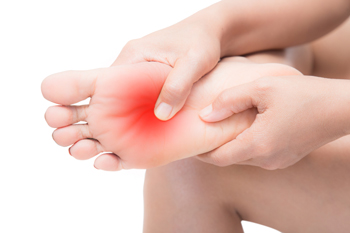
Charcot-Marie-Tooth disease, or CMT, is a group of genetic disorders that affect the peripheral nerves responsible for transmitting signals between the brain, spinal cord, and the rest of the body. It can also impact the nerves controlling muscle function. Symptoms typically manifest in adolescence or early adulthood, often beginning in the feet and lower legs before spreading to the hands and arms. Common signs include muscle weakness, reduced muscle bulk, diminished reflexes, sensory loss, and foot deformities. CMT is a genetic condition, with various types resulting from mutations in different genes. The two primary categories are CMT1, characterized by issues with the myelin sheath surrounding nerves, and CMT2, involving abnormalities in the nerve axons themselves. CMT3, or Dejerine-Sottas disease, is a severe form that begins in infancy. There is no cure for CMT, but treatment focuses on managing symptoms and maintaining mobility. If you know you have Charcot-Marie Tooth disease or have symptoms characterizing this disease, it is suggested that you make an appointment with a podiatrist for a proper diagnosis and treatment.
Neuropathy
Neuropathy can be a potentially serious condition, especially if it is left undiagnosed. If you have any concerns that you may be experiencing nerve loss in your feet, consult with Gary J. Kaiserman, DPM from Achilles Footcare Center. Our doctor will assess your condition and provide you with quality foot and ankle treatment for neuropathy.
What Is Neuropathy?
Neuropathy is a condition that leads to damage to the nerves in the body. Peripheral neuropathy, or neuropathy that affects your peripheral nervous system, usually occurs in the feet. Neuropathy can be triggered by a number of different causes. Such causes include diabetes, infections, cancers, disorders, and toxic substances.
Symptoms of Neuropathy Include:
- Numbness
- Sensation loss
- Prickling and tingling sensations
- Throbbing, freezing, burning pains
- Muscle weakness
Those with diabetes are at serious risk due to being unable to feel an ulcer on their feet. Diabetics usually also suffer from poor blood circulation. This can lead to the wound not healing, infections occurring, and the limb may have to be amputated.
Treatment
To treat neuropathy in the foot, podiatrists will first diagnose the cause of the neuropathy. Figuring out the underlying cause of the neuropathy will allow the podiatrist to prescribe the best treatment, whether it be caused by diabetes, toxic substance exposure, infection, etc. If the nerve has not died, then it’s possible that sensation may be able to return to the foot.
Pain medication may be issued for pain. Electrical nerve stimulation can be used to stimulate nerves. If the neuropathy is caused from pressure on the nerves, then surgery may be necessary.
If you have any questions, please feel free to contact our offices located in Forest Lane and West Kiest Boulevard Dallas, TX . We offer the newest diagnostic and treatment technologies for all your foot care needs.
